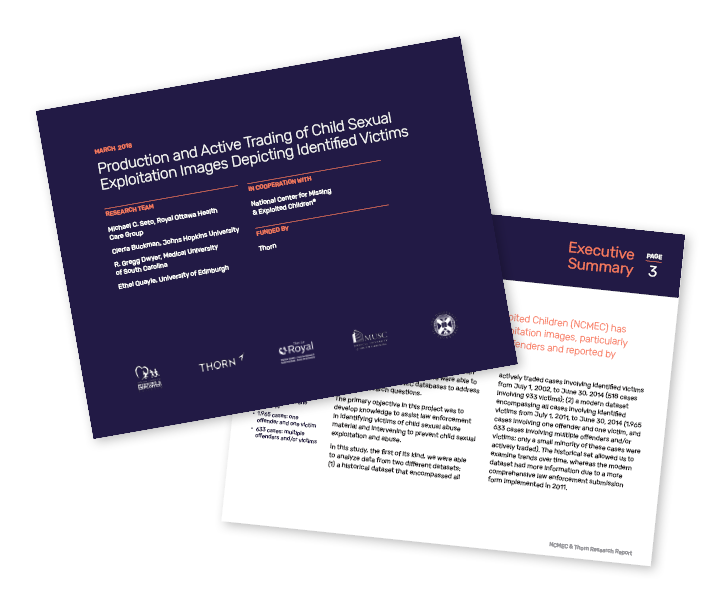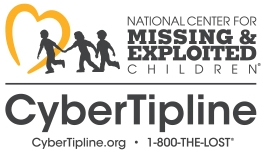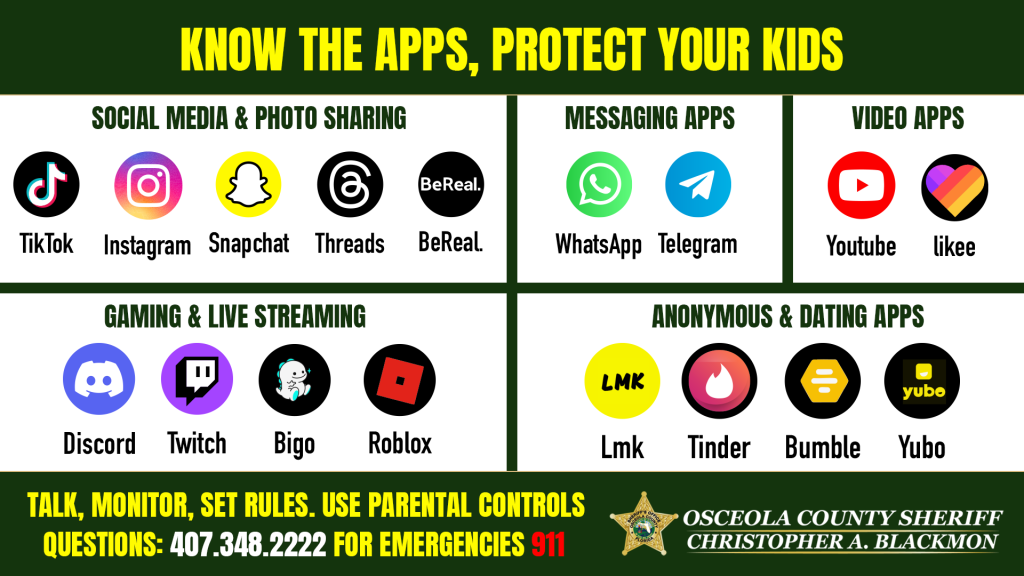Overview
NCMEC’s CyberTipline is the nation’s centralized reporting system for the online exploitation of children. The public and electronic service providers can make reports of suspected online enticement of children for sexual acts, child sexual molestation, child sexual abuse material, child sex tourism, child sex trafficking, unsolicited obscene materials sent to a child, misleading domain names, and misleading words or digital images on the internet.
Every child deserves a safe childhood.
What Happens to Information in a CyberTip?
NCMEC staff review each tip and work to find a potential location for the incident reported so that it may be made available to the appropriate law-enforcement agency for possible investigation. We also use the information from our CyberTipline reports to help shape our prevention and safety messages.
Is Your Image Out There?
One of the worst things about having an explicit image online is feeling like you’re facing everything alone. But you have people who care for you and want to help. Reach out to them!
A trusted adult can offer advice, help you report, and help you deal with other issues. It could be your mom, dad, an aunt, a school counselor, or anyone you trust and are comfortable talking to. You can also “self report” by making a report on your own to the CyberTipline.
Families of exploited children often feel alone in their struggle and overwhelmed by the issues affecting their lives. NCMEC provides assistance and support to victims and families such as crisis intervention and local counseling referrals to appropriate professionals. Additionally, NCMEC’s Team HOPE is a volunteer program that connects families to others who have experienced the crisis of a sexually exploited child.
Having a sexually exploitative image of yourself exposed online is a scary experience. It can make you feel vulnerable and isolated, but remember, others have been in the same situation as you – and they’ve overcome it. Learn the steps you can take to limit the spread of the content.
By the Numbers
In 2023, reports made to the CyberTipline rose more than 12% from the previous year, surpassing 36.2 million reports.
There were 105,653,162 data files reported to the CyberTipline in 2023.
Reports of online enticement increased by more than 300% from 44,155 in 2021 to 186,819 in 2023.
Find more data in the CyberTipline Report.
By the Numbers

In 2022:


Find more data in the CyberTipline Report.
More
Learn more about online exploitation and safety.

Production and Active Trading of Child Sexual Exploitation Images Depicting Identified Victims

The Online Enticement of Children: An In-Depth Analysis of CyberTipline Reports
The banner is a tool to allow you to conveniently share a link to NCMEC's CyberTipline to create a report. To display this banner on your website:
- Read the terms of use. Your use of any National Center for Missing & Exploited Children® banner signifies your agreement to these terms of use.
- Enter the code snippet below into your site.
<iframe src="https://www.missingkids.org/gethelpnow/cybertipline/widget" width="300" height="500"></iframe>
NCMEC is a founding member of







.jpg)








